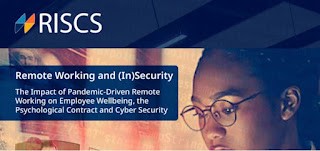Friendships – the hidden key to doing a PhD: Laura Shipp
Nearly two weeks ago, I handed in my PhD after five years within the CDT. The experience has been so varied both in activities and the things that life has thrown at me since I began. Overall, it has been a good experience with some difficult points, but I feel so relieved to and proud to have got here.
The day before I handed in I had to work on writing my acknowledgements. In my head, this signified that the journey was coming to an end and allowed me to reflect along the whole process. Writing those acknowledgements made me realise how much I have needed my friendships in order to get to the finish line. It made it clear how much I have relied on this form of support along this journey and how thankful I was for this.
PhDs can often passion projects. Many people pour their time, effort, frustrations, tears, and a lot else into their thesis. This was very much the case for me and at times, I felt like the thesis could swallow me whole. At other points it was frustrating or draining. If you ever been on academic twitter, you will have seen endless tweets and memes about how difficult PhDs are, both mentally and emotionally. In recent years, there have been reports about postgraduate students facing higher rates imposter syndrome and mental health struggles. This is often exacerbated by different forms of marginalisation, given the limited representation within the academy and particularly in STEM subjects. PhDs can be long, lonely, infuriating things. Yet, despite the support mechanisms that exist such as supervisors, university services, or external mental health professionals, there remains a need for support and companionship through this process.
In my experience, I found that I needed a support network around me in order to combat these things. I found this in friendships. From getting advice on how to approach something, people to write with or hold you accountable, to someone to laugh and do non-PhD-related things with and help you maintain your work-life balance. Friendships provide both lightness and encouragement across this challenging journey.
For me, a huge part of the CDT experience has been about making friends with people who are on the same journey as me. Although our individual paths, research interests, and experience will be different, the PhD experience is unique and creates such specific challenge that means so much can be gained from having people around me who share this struggle. Yet, it remains so important to have people outside this space too. People who can take you mentally out of the PhD headspace as it will consume everything if you let it. It definitely takes more support than I expected to get to the end of a PhD and I definitely recommend leaning on and supporting friends through the process. A PhD seems to take a village to get it finished and I am so grateful to the special friends that helped me along the way.
The CDT format works well for making the research journey feel less lonely. To start with, there are a group of people embarking on the journey with you. There are also a host of events planned through the year that help you to get to know those around you, including those in other years, to staff and postdocs. Yet, I would also encourage people to look beyond the CDT to the wider university for events and places where they could meet new people. For example, writing workshops (the doctoral school is running one this November!), RDP sessions, PGR cafes and more. We are lucky to have a big group of people on our campus and you never know where you could make a friend who might along through this experience. I don’t know what will be next for me in my career, but I feel sure that the friends I have made or have been there for me will be there support me in the next chapters.



Comments
Post a Comment